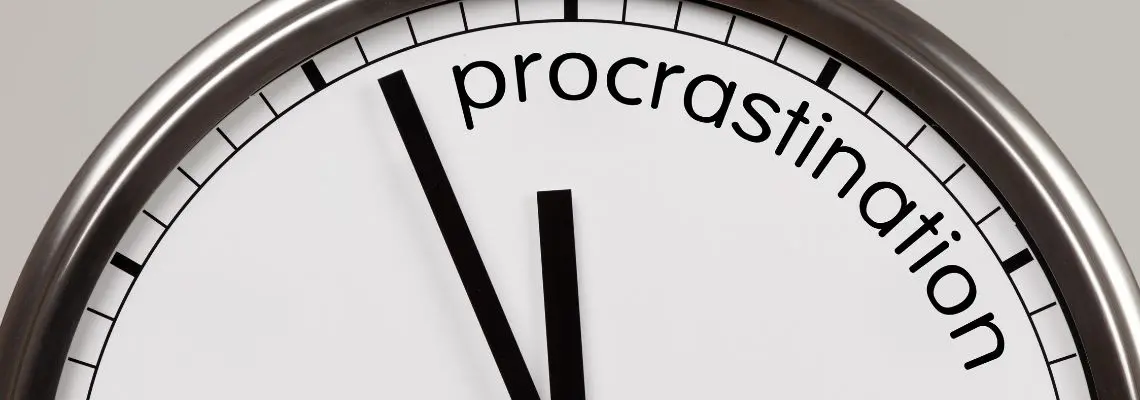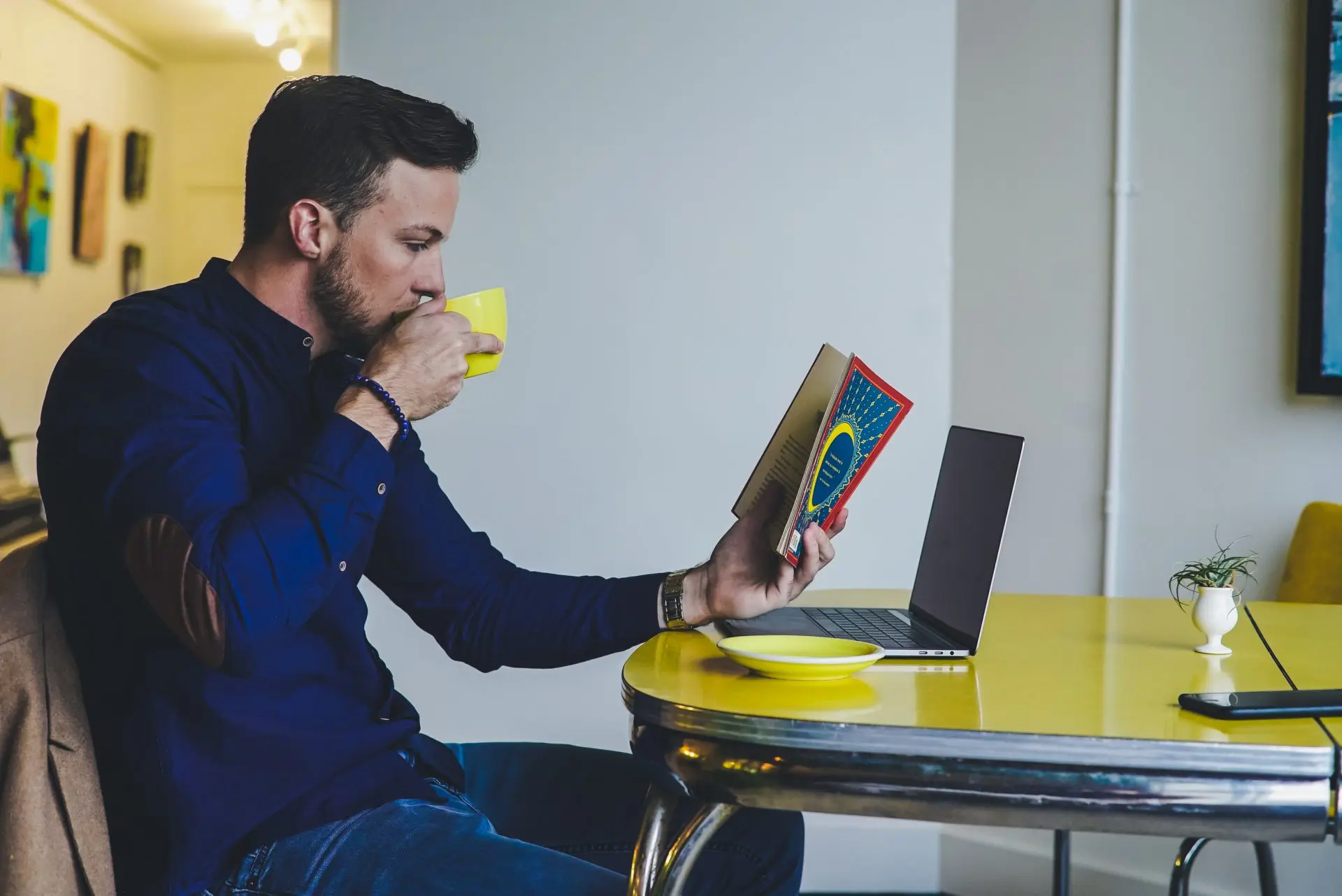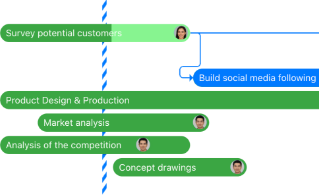How to Procrastinate Productively
Yes, it's really a thing!

Procrastination is something we all know we shouldn’t be doing, but we’re all guilty of. Whether it’s putting off studying for exams, avoiding housework, or delaying writing an article for your company’s blog (🙊).
But what if I told you that there was a silver lining? That even though you procrastinate, it doesn’t have to yield a negative result. Productive procrastination is a concept that illustrates this and in this article, I will not only explain to you what it is, but also, how to do it.

Procrastination is Inevitable
Let’s face it, procrastination is inevitable. Even the most motivated people can sometimes find themselves falling victim to it. With so many distractions available at our fingertips (from Instagram to Idle Miner Tycoon), it’s just too easy a habit to get stuck into.
Procrastination also gets a bad rap. So much so that there are many tips, tricks, and techniques to help those who endeavour to overcome it. Avid Zenkit blog readers will know how much we love a good productivity tip, from how to eat the frog, to time blocking, to Getting Things Done.
Is Productive Procrastination Simply an Oxymoron?
The words “productive” and “procrastination” aren’t normally associated with one another. In fact, when you break down the definitions of both words, you will find that they kind of contradict each other.
- Productive: “the quality, state, or fact of being able to generate, create, enhance, or bring forth goods and services.”
- Procrastination: “the act or habit of putting off or delaying, especially something requiring immediate attention.”
However, procrastinating productively does appear to exist.
Piers Steel, PhD, a psychologist at the University of Calgary, proposed the concept of productive procrastination while researching his book The Procrastination Equation. It’s the idea that although we are not engaged in the task we originally sought to do, shifting our efforts to other tasks can still result in time spent productively.
John Perry, PhD, a philosophy professor at Stanford, coins the same idea as “structured procrastination.” It’s the art of transforming the bad trait of procrastinating into something useful. He believes that procrastinators seldom do nothing when they are avoiding the task at hand and if they structure that time for tasks that relate to the original task or improve their general well-being, then they can actually get a lot done.
In short, if you do something useful while you procrastinate instead of aimlessly scrolling through dank memes, then you are not entirely wasting your time.
7 Ways to Productively Procrastinate
Even though you procrastinate, your time can still be of value. Here are seven things to try out next time your brain decides to clock off from your current task:
1. Catch up on the news
There’s so much going on in the world that sometimes it’s hard to keep up with current affairs. Staying informed with the news not only keeps you engaged with what’s going on around you but can also help you to develop a critical mindset, be a source of inspiration, and help you in emergencies.
2. Listen to a podcast
There’s no harm in obtaining more information if it’s relevant and can be helpful to what you’re working on. And even if it’s just a super interesting, yet irrelevant topic, it’s bound to be useful somewhere down the line.
Podcasts are a great alternative if you’re keen on giving your eyes a rest from the computer screen. Learn about the history of mankind, how to maintain a healthy lifestyle, or get your head around the Bitcoin craze. You’ll be sure to find a podcast for almost any topic.
3. Get active
If your brain is starting to shut down, why not try to activate your body in the meantime? Exercise alerts your mind and can help with memory and thinking. So getting up and going for a run or shooting some hoops can rejuvenate your mind and help you start afresh.
If you’re not a fitness fanatic, even going out for a stroll around the block and stretching your legs can do wonders for not only your mind but also your posture.
4. Improve a skill
Practise your foreign language skills, build on your spreadsheet capabilities, or brush up on some basic mathematics. There are so many learning tools accessible online that enhancing a skill has never been easier.

5. Backup your files
When was the last time you backed up your files into a cloud or a hard drive? Safeguarding our data is not something everyone does very often so if your brain decides to take a break, it’d be wise to use the time to secure all your documents, photos, and files to protect them from any future disasters.
6. Solve a smaller problem
Finding solutions to smaller problems can give you the motivation and inspiration to tackle the bigger task at hand. Problem-solving is an invaluable skill to have no matter where you are in life and what exactly it is you’re doing. It’s a beneficial quality that spreads across industries and institutions.
Remember, the tasks don’t have to be anything major. It can be as small as figuring out what to have for dinner, sourcing contact details of a potential client, or figuring out why your bicycle keeps on making a funny noise when you ride it.
7. Have a ‘low energy’ list on hand
A ‘low energy’ list, as Paul Boag explains, is a list of tasks that doesn’t require a lot of energy to complete. Because procrastination usually comes around when our brains start to get tired, having this list ready will come in handy as it will keep you occupied with useful things to do without having to think about what the tasks have to be.
Examples of such tasks are taking the bins out, watering your plants, closing your 100+ browser tabs, and unsubscribing to all the newsletters you don’t actually read.
Final Thoughts
It’s worth noting that productive procrastination isn’t something that everyone will find practical. It’s simply a solution for those who find themselves struggling to stop procrastinating, yet still want to gain something from their time.
For those who are eager to stop their compulsive habit, we have a plethora of posts dedicated to methods that are designed to help you stop. Click here to start browsing.
How do you productively procrastinate?
Cheers,
Dinnie and the Zenkit Team
FREE 20 MIN. CONSULTATION WITH A PROJECT MANAGEMENT EXPERT
Wanna see how to simplify your workflow with Zenkit in less than a day?
Book a Live Demo